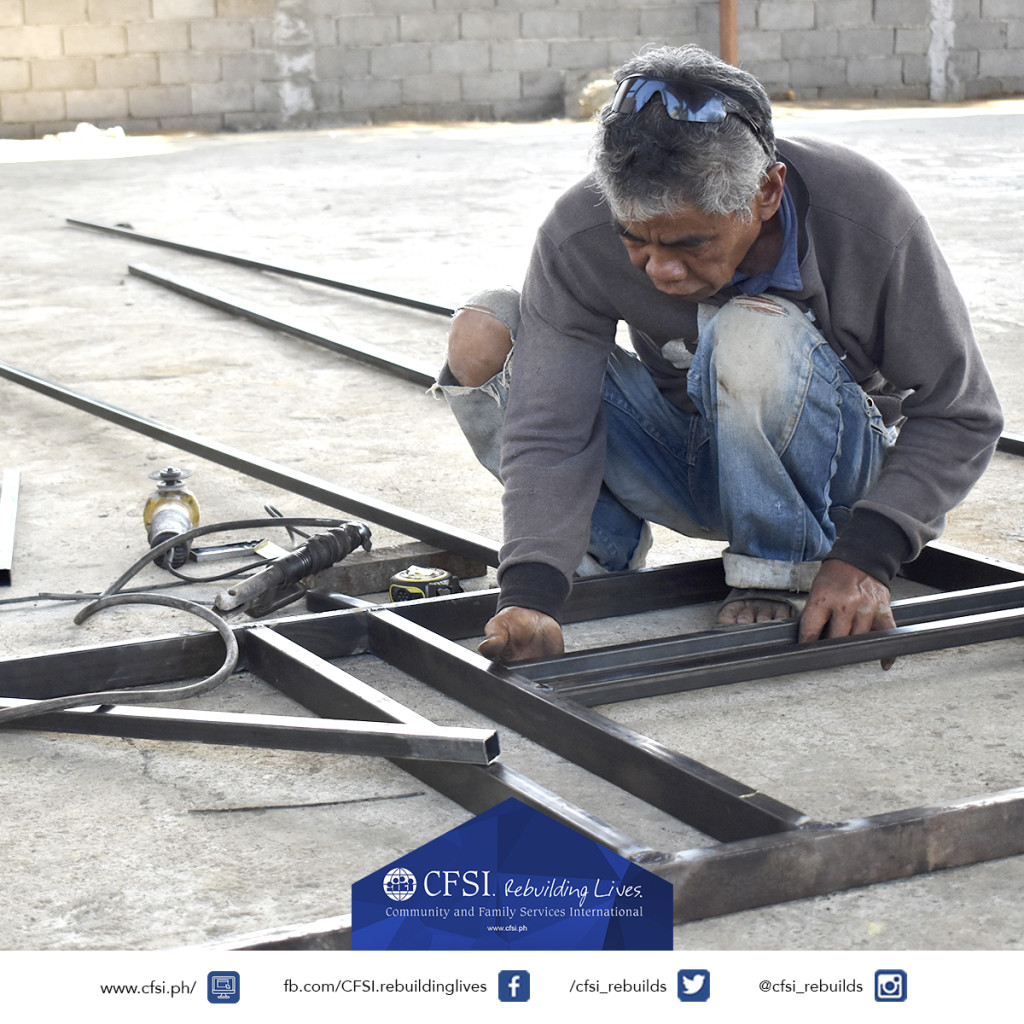Domocao Magolama has been working as welder for three years now. And albeit being good at his craft, Domocao was a craftsman without tools.
For the past three years, he has had to pay for the rent of welding equipment, which could have gone directly instead to support his family of ten children. To make things worse, the Marawi siege in 2017 affected his livelihood, which suffered even more as he received less and less customers and orders.
Through the Marawi Recovery Project (MRP), Domocao was identified as a beneficiary of the livelihood support sub-project and was granted his own set of welding tools. About 1,500 families benefited from the sub-project where various livelihood starter sets for food vending, fishing, tailoring, and carpentry, among others, were provided as support for them.

Since receiving his tools on February of this year, Domocao shares that he has been regularly receiving at least one customer per week. Furthermore, he was hired by the Chairperson of Barangay Papandayan to assist in the construction of the barangay’s rostrums, benches, window grills, and other facilities.
As Marawi continues to rise and recover, business has also started to soar for Domacao as more and more families have been availing his services to build and renovate their homes.
To ensure the sustainability of their ventures, beneficiaries of the MRP Livelihood Support were also invited to participate in Financial Management and Bookkeeping trainings, further equipping them with the knowledge to manage their earnings and finances. Domacao shares that the trainings have helped him greatly.
The Marawi Recovery Project, implemented by CFSI, is funded by the Australian Government Department of Foreign Affairs (DFAT) and aims to promote the protection, psychosocial, and economic recovery of around 4,000 households affected by the Marawi Siege.

